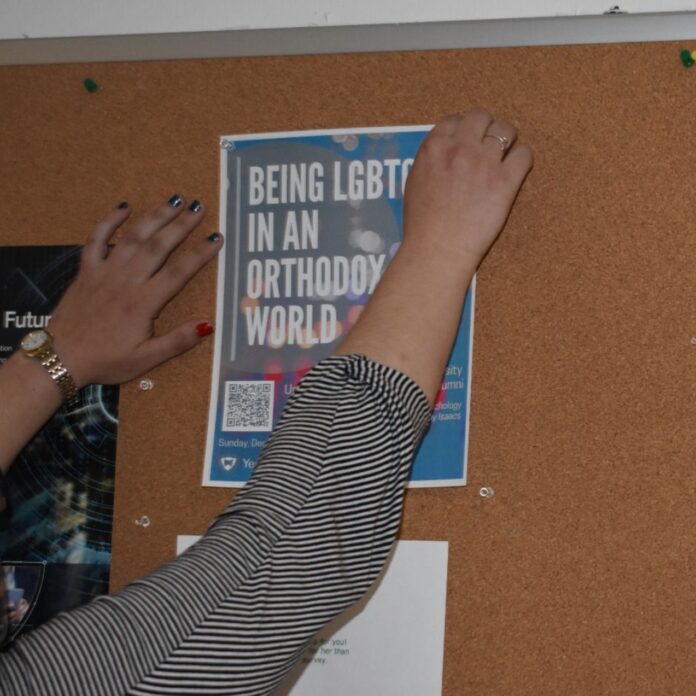Will colleges be next to enter the “religious freedom” versus LGBTQ rights debate that has repeatedly come before the federal courts in recent years? Yeshiva University (YU), a private Orthodox Jewish research university with four campuses in New York City, says yes.
YU has petitioned the U.S. Supreme Court to reject a lower court ruling that the college recognize the YU Pride Alliance as an official student organization. In an emergency application last week, YU says that “As a deeply religious Jewish university, Yeshiva cannot comply with that order because doing so would violate its sincere religious beliefs about how to form its undergraduate students in Torah values.”
Attorneys for the Becket Fund for Religious Liberty, which represents YU, stipulated that the lower court’s order is an “unprecedented” intrusion into the school’s religious beliefs and as such is a clear violation of YU’s First Amendment rights.
While the school has argued its religious beliefs prevent it from officially recognizing the group, the New York Supreme Court ruled in June that Yeshiva University must recognize the YU Pride Alliance because the school is not a religious corporation and does not qualify for a religious exemption to the New York City Human Rights Law. Now, as the new fall semester is beginning, YU has filed for a stay.
The Pride Alliance had its own response to the lawsuit, writing, “YU’s refusal to recognize the YU Pride Alliance sends a stark and painful message of rejection and non-belonging to its LGBTQ students and their allies. … An official LGBTQ student club is not only Plaintiffs’ right as students, it is necessary to their health and well-being on campus.”
Across the country, in Utah, Brigham Young University (BYU), a private research university founded by Mormon religious leader Brigham Young and sponsored by The Church of Jesus Christ of Latter-day Saints, removed pamphlets advertising off-campus LGTBQ resources from welcome bags given to new students as the school began its fall semester.
The pamphlets were deemed to be in violation of the school’s code. The Office of Student Life removed the pamphlets after deciding that they went against the teachings of the church.
RaYnbow Collective, a nonprofit group founded by Maddison Tenney that “focuses on education and allyship for queer students” made the pamphlets. They were filled with information on events available to LGBTQ students. Included in the pamphlets were lists of organizations in the Provo area that could provide therapy, safe housing and mentorship. Though Tenney is a BYU student, RaYnbow Collective has no official affiliation with BYU.
Tenney, an out lesbian, told NBC News that she made the pamphlets because when she was a new student at BYU, she had felt isolated and lonely as an LGBTQ person. BYU students are prohibited from engaging in “same-sex romantic behavior” or risk being expelled. LGBTQ students are allowed to be openly gay or lesbian, but may not date students of the same sex. The honor code instructs students to “encourage others” to comply with the school rules. This has been viewed by gay and lesbian students as giving their peers permission to report anyone who violates the rules to school administrators.
“I remember sitting in my white dorm room with these cement walls and breaking down,” Tenney told NBC News. “I didn’t know anyone who was like me, who wanted to be faithful and embrace the fullness of themselves.”
The Yeshiva students who formed the YU Pride Alliance expressed similar sentiments and accused YU of over-reacting to the group.
“In framing this as a religious emergency that has to be stopped, to me, (Yeshiva is) demonstrating the very homophobia that they claim doesn’t exist on campus,” said Rachael Fried, executive director of JQY (Jewish Queer Youth), a nonprofit that supports Orthodox Jewish queer youth, to Religion News Service.
Eric Baxter, vice president and senior counsel for the Becket Fund said, “Yeshiva, in consultation with its senior rabbis, concluded that the club would be inconsistent with the religious environment it seeks to maintain on campus.”
The Supreme Court has yet to respond to YU. Even if the court fails to intervene, YU’s appeal of the original ruling will continue to traverse the New York legal system throughout the fall, according to Baxter.
YU’s emergency application and BYU’s ongoing issues with LGBTQ students are part of a larger national “culture wars” and religious freedom debate over what limits, if any, there should be on religious freedom and when LGBTQ rights issues can be considered to override such religious considerations.
As PGN reported during the last Supreme Court term, the conservative majority of the court has consistently found in favor of religious groups.
In July, Justice Samuel Alito, the court’s most conservative member and author of the recent Dobbs ruling which reversed Roe v. Wade, argued during a speech in Rome, that the free exercise of religion is essential in the U.S. and that “Religious liberty is under attack in many places.”
